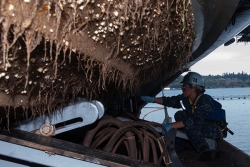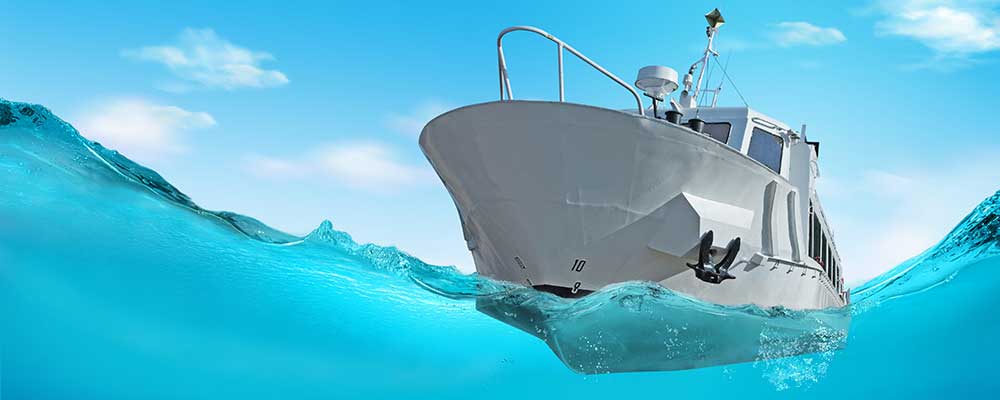 New Zealand is set to become the first country in the world to introduce a nationwide biofouling standard for ships, and has issued guidance on how international vessels can comply with the new rules that come into force next month.
New Zealand is set to become the first country in the world to introduce a nationwide biofouling standard for ships, and has issued guidance on how international vessels can comply with the new rules that come into force next month.
From 15 May, all commercial and recreational vessel operators will have to show they have managed biofouling on their vessels before they enter New Zealand waters.
In March 2017, the Korean-owned bulk carrier DL Marigold was ordered from New Zealand and Fijian waters after divers discovered dense fouling of barnacles and tube worms on the ship’s hull. The action was the first time a ship had been ordered to leave the country’s waters because of biofouling.
Paul Hallett, biosecurity and environment group manager for New Zealand’s Ministry for Primary Industries (MPI), said, “Biofouling presents a major biosecurity risk to New Zealand. The new standard aims to reduce this risk and protect our unique marine environment and our aquaculture industries by ensuring vessels arrive with a clean hull.
“Over the past four years, MPI has been working incredibly hard to ensure everyone is aware and ready to comply when the standard goes live in May.”
Alongside the new guidance document, the MPI has also released a document to help vessel owners and operators develop customised Craft Risk Management Plans.
“We understand that not all vessels will be able to meet the compliance measures outlined in the standard. Craft Risk Management Plans allow these vessels to develop a more tailored compliance plan to manage the biofouling,” said Hallett.
“We expect vessels with unique operating profiles, such as cruise ships and fishing vessels, will most likely use this option.”
The MPI will assess the biofouling risk of the vessel prior to its arrival based on documents supplied by the operator. “We’ll be looking for evidence of continual maintenance, cleaning or treatment to verify the vessel complies with the new rules,” said Hallett.
“Vessels that are unable to comply with the new regulations may have their schedules interrupted or restricted, or even face the possibility of being directed to leave New Zealand territory. These measures will all be at the expense of the vessel owner or operator.
“While we are confident industry is ready for the new rules, we strongly advise vessel operators to get in touch with MPI if they are still unsure how to comply.”
Download Guidance Document for the Craft Risk Management Standard for Biofouling


